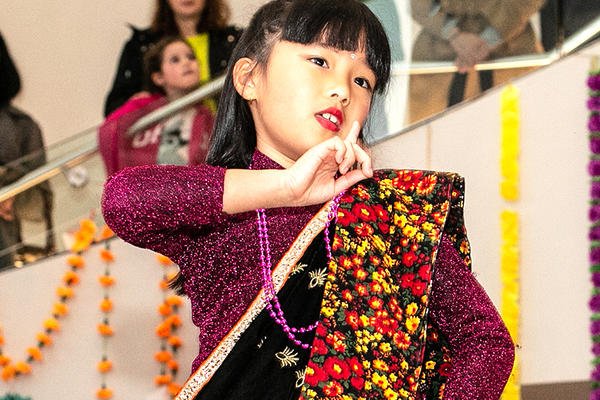
No one expects scintillating Socratic dialogue, or even normal reportorial discourse, at a World Cup news conference. But even by the tournament’s relaxed standards, the opening remark to Russia’s coach the day before his team played Spain last week was unusually obsequious.
“I wanted to give you a small present,” a Russian reporter declared, springing to his feet. Opening a plastic shopping bag, he handed the coach, Stanislav Cherchesov, what appeared to be a porcelain figurine of a girlwith a disproportionally large head. “It’s called ‘Success,’” the man said, proudly.
It was a weirder-than-usual moment in the routinely weird ritual that is the World Cup news conferences, a daily piece of amateur theater where the questions are often repetitive, the players are generally bored, the coaches find 50 ways to say nothing, and journalistic neutrality repairs to the nearest bar, breaks open a beer and cheers for the home team.
Most professional sports have similar exercises, of course. Coaches and players are dragged out at some point — before a game, after a game — and forced to answer questions from a mob of reporters about strategy, preparedness and, inevitably, how they feel about whatever has happened or is about to happen.
“In some case your greatest challenge is not to show how you feel about the question,” said Bob Bradley, who, as coach of the United States men’s national soccer team at the 2009 Confederations Cup in South Africa, was asked at a news conference how the team was coping with the recent death of Michael Jackson before the final.
“It was said in such a serious way, as though everyone on the team was in mourning,” he said in an interview. “I went around the block trying to be diplomatic. I tried to be respectful of the question and not to say, ‘This is not the time to be talking about Michael Jackson.’”There are plenty of international tournaments with plenty of potential for missed cross-cultural signals. But the World Cup is unique in having so many participants from so many countries all appearing in the same forum, with the same ritualized regularity, match after match. After a while the news conferences, with their long-winded, multipart questions, their laughably imprecise simultaneous translations and their rigid, time-controlled formats, begin to seem like parts of one giant whole, their details spilling and flowing into one another.
Reporters at Argentina’s conferences wanted to talk about Lionel Messi. Reporters at Portugal’s wanted to talk about Cristiano Ronaldo. Reporters at Iceland matches wanted to talk about whether the coach is still a dentist. But beyond such idiosyncratic details, some common themes have emerged from Russia.
Sycophantic Grandstanding
The news media is, in theory, meant to maintain a cool, analytical distance from the subjects it covers. Sure, you might be from Japan, or Brazil, or France, but, in the purists’ view, a reporter is supposed to behave like a citizen of the world of soccer for the purposes of reporting on a match.
Not so at the World Cup, where it is perfectly fine for reporters from a particular country to wear team jerseys to the stadium; to break into applause when a coach enters or leaves the room; to clamor for autographs or selfies; and to ask questions that are variations on the theme of “How great are you?” It is not uncommon to hear a questioner refer to the national team from his or her country in the first person plural.
When Colombia lost to England after a penalty shootout in the round of 16, for instance, the first three questions to José Pekerman, the team’s Argentine coach, were from members of the Colombian press corps.
“Despite you being knocked out — congratulations for the football that Colombia has played tonight,” the first questioner began.
“First of all, congratulations for getting this far,” the second said.
“You made us dream again,” said the third.
“This is the first match ending in a draw at this World Cup, maybe it’s the worst one so far,” the reporter began, before describing hearing boos and seeing disgruntled spectators leaving the stadium early. “What do you think about this? How do you assess the situation?”
Perhaps sensing Hareide looking a bit put out as the Russian-to-Danish translation came through his earpiece, the reporter quickly added: “Congratulations on the playoff and on further participation! Best of luck to you.”
Stating the Obvious
Given a captive audience of journalists on deadline, coaches often take the opportunity to wax elegant about the game, uttering what amounts to a series of fancy banalities disguised as deep truths.
“It’s true that this is a playoff, a life-and-death match, and there will be only one team going through,” Russia’s Cherchesov said before his team played Spain. “If you lose, you are out.”
Asked to comment further on Denmark’s scoreless tie with France, Hareide, the Danish coach, responded with some random thoughts about the sport itself.
“Football is an ongoing process,” he said. “Sometimes you have to replace this or that player. You have to be able to handle playing different styles. You know, you need to do what you need to do in order to win.”
And Fernando Hierro, Spain’s coach, unleashed some important observations of his own in one particularly memorable non-answer. “In football, there’s a fine line between winning and losing,” he said. “It’s football, and football is sometimes like that.”
ADVERTISEMENT
How Do You Feel?
It’s a classic sports-reporter gambit — asking how a person feels when the answer should be fairly clear: generally you feel great, or you feel terrible, or you decide that how you feel is actually none of the questioner’s business.

Asked by a Danish reporter if he had a “message for the Russian people” before the tournament, Cherchesov, the Russia coach, lapsed into a bit of national-identity determinism.
“You’re Danish? Danish from Denmark? Danish?” the coach asked. “You would be hard-pressed to know the labyrinths of the Russian soul.”
More often, the response is exactly what one might expect. Asked how he felt after his team was eliminated from the tournament, South Korea’s goalkeeper, Jo Hyeon-woo, put it plainly: “Of course we were disappointed, and so that’s why a lot of us cried.”
Mostly, though, the question just comes at the wrong time. Minutes after his team stunningly went out of the tournament on penalties in the round of 16 probably was not the best moment to ask Spain’s Hierro how he felt.
Recitations of Facts
Whether to stall for time as they think of something substantial to say, or because they feel that whatever they say is meaningful by virtue of the fact that they have said it, or because they’re tired and their brains are not working sharply, many coaches give answers that are essentially factual recitations of the events of the game.
“We played 120 minutes, then there was a penalty shootout,” Hierro said after the game with Russia.
“We didn’t lose today,” the Senegal coach, Aliou Cissé, observed after his team’s match with Japan ended in a 2-2 draw. “We won the first game and we drew the second. It’s up to us to double our efforts and really get focused because our next match is in a few days.”
Travel Tips
One peculiar feature of this year’s World Cup has been the prevalence of elaborate questions from Russian and former-Soviet-republic journalists around one particular topic: “Do you like Russia? Why? What parts do you like? Can you talk about those parts that you liked?
“You already played at several stadiums in and visited several cities here,” began one such question to the England coach, Gareth Southgate, after a 6-1 victory against Panama. “Which city is the one with the best organization, and which is the stadium is the best in terms of football and atmosphere?”
In Volgograd, the questions had to do with the local bug problem.
“How do you like the Volgograd stadium and the little flies?” a Russian journalist asked Nabil Maaloul, the Tunisian coach.
“I did not feel the midges,” Maaloul responded.
Another reporter asked the England striker Harry Kane for his views on Volgograd and its pivotal role during World War II, when it was called Stalingrad and was the scene of a bloody and decisive battle with deep emotional resonance for the Russian people.
“History is what it is,” Kane said.

What about Kazan? a reporter asked Didier Deschamps, the French coach. “Are there any peculiarities pertaining to the city which could be favorable or unfavorable for you?”
It was a hard question to answer, given how little time he had spent in Kazan, but Deschamps tried.
“I haven’t seen the city, really, or the museums,” he replied. “I don’t know what’s there because I went from the pitch to the hotel, and that’s it.”
Rory Smith, Tariq Panja, Andrew Keh and Andrew Das contributed reporting.
Source:-.nytimes



